At a Loss for Words? Resist Climate Silence
The Drain is a weekly roundup of environmental and climate news from Legal Planet.
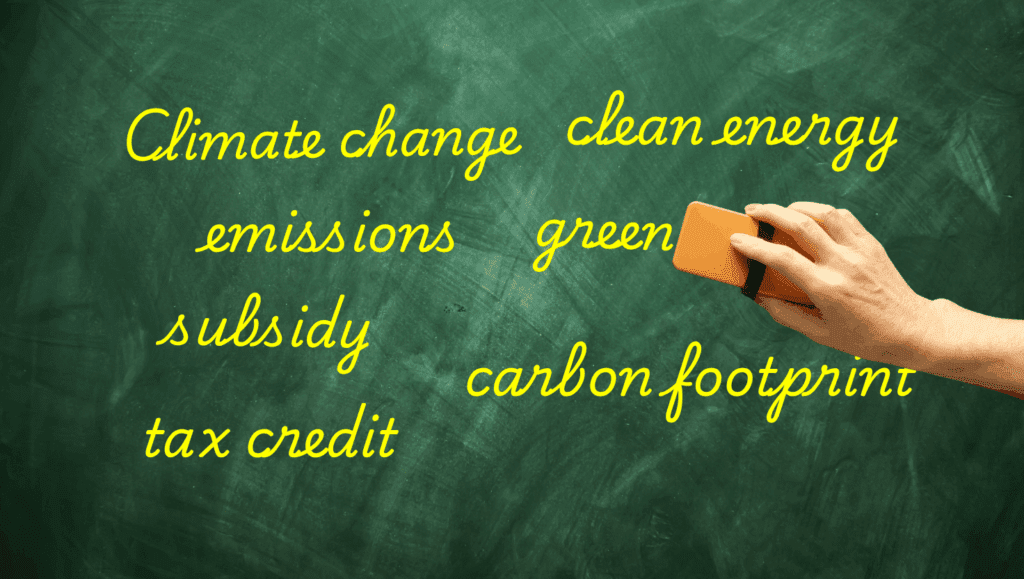
A few years ago, I was writing about how President Joe Biden was flying around the country to promote his landmark climate law without uttering the word “climate.” Seems so quaint. Now, we find ourselves in a place where “climate change” is on a list of banned words maintained by the U.S. Energy Department, along with adjectives like “green” and “clean,” and nouns like “emissions,” “sustainability,” ‘footprint,’” and “tax breaks, tax credits, subsidies.” Working at DOE without using the word “emission” sounds like a drinking game, and a hard one at that.
“Please ensure that every member of your team is aware that this is the latest list of words to avoid — and continue to be conscientious about avoiding any terminology that you know to be misaligned with the Administration’s perspectives and priorities,” reads the directive from an Energy Department official, according to reporting from Politico’s Zach Colman. This Orwellian ban applies to public-facing and internal documents, briefings, and reports.
There is lying by omission and then there is just lying.
I wrote last week about how not to interview a Big Oil CEO or a Trump official ahead of New York Climate Week and a scheduled appearance by Energy Secretary Chris Wright. So how did it go? Wright told three big lies on the stage of the New York Times Climate Forward event that were not fact-checked in real time.
“There are not oil and gas subsidies,” Wright replied to a question from NYT climate correspondent David Gelles. “It’s not a subsidized industry,” the former fracking executive said. Americans subsidize domestic oil and gas to the tune of $34.8 billion a year, according to an Oil Change International report. That’s not even counting the $625 million that the Trump administration pledged this week to boost the output of coal from aging coal plants — which Trump has ordered be called “clean, beautiful coal.” Clean, beautiful coal is a more expensive type, I guess, if it needs a subsidy.
“Attribution science is not science,” Chris Wright also said. “That’s people reaching for something.” Attribution science is in fact “a field that has been growing for more than two decades as researchers seek to understand how much more likely certain weather events are as a result of a warming planet,” NYT’s Lisa Friedman wrote in a fact-check after Wright had left the stage.
Wright also pants-on-fire lied by saying that critics of a recent Energy Department climate report “did not dispute any of the facts or data” in the report they just “didn’t like the conclusion.” On the contrary, a group of 85 climate scientists published their own 500-page report picking apart the many errors and misrepresentations. UCLA climate scientist Karen McKinnon described the DOE report as “ignoring decades of scientific research, cherry-picking parts from studies, and in some cases just completely misrepresenting studies” including her work on heat waves. You can hear her describe it in a recent UCLA webinar.
The Energy Department made more wild headlines this week, because it plans to claw back $13 billion in unspent climate funds. But doh, DOE doesn’t have enough legal expertise left in-house after DOGE cuts to carry out the award cancellations the Trump administration has promised. So, it’s going to spend up to $50 million on outside counsel to do so, Maeve Allsup reports at Latitude Media.
This week, EPA Administrator Lee Zeldin was hoping to sign off on the final rule for scrapping the very important endangerment finding — before agency staff have even sifted through all public comments — but that might end up delayed by the government shutdown, as Jean Chemnick reports for E&E News. The government can’t deregulate without government regulators working around the clock, it turns out. And while FEMA should be able to operate at 85% of capacity during this government shutdown, neither EPA nor the Interior Department has published updated government shutdown plans as of Tuesday, Alexander Kaufman reports. EPA enforcement inspections will pause, while Interior workers processing oil and gas permits stay at work. Turns out the administration takes shortcuts on public comment routinely: DOE eschewed notice-and-comment when it repealed a Biden-era regulation on showerhead water flow, Bloomberg Law reports. Trump signed an executive order saying, “notice and comment is unnecessary because I am ordering the repeal.”
Playing emperor at the UN last week, Trump’s address sans teleprompter included about 10 minutes of riffing on climate change and energy, and as such was the stupidest climate speech in history, but it was significant. Journalists affixed it with the words “meandering,” “remarkable,” “falsehoods,” “unfiltered,” and yes “stupid.”
It’s whole-of-government narcissism, not just from Trump. “No more dudes in dresses. No more climate change worship … we are done with that shit,” Pete Hegseth lectured hundreds of generals and admirals that he summoned from across the globe this week. Hegseth has ordered an end to climate defense planning. Of course, the Pentagon might be done with climate change, but unfortunately climate change is not done with us.
Climate must not become an implicit, unspoken, “you-know-what” crisis. It doesn’t become less dangerous when you stop saying its name or tracking its development; it becomes more dangerous. And climate silence makes it harder to galvanize public opinion toward action.
One world leader who is not at a loss for words on climate is Pope Leo XIV, who gave his first official climate speech at the Raising Hope conference, to mark the 10th anniversary of Laudato Si, a groundbreaking papal address by Pope Francis.
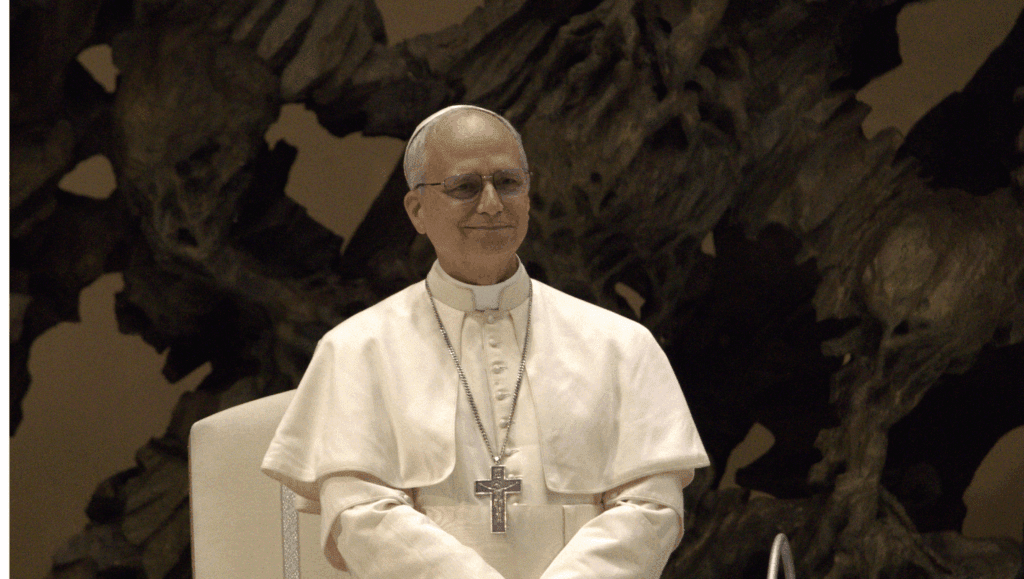
Today, Pope Leo warned that “some have chosen to deride those who speak of global warming” and he called for “a true ecological conversion that transforms both personal and communal lifestyles.” He even encouraged young people, parents, and NGOs to demand action. “Everyone must put pressure on governments” to implement regulations at national, regional and local levels, Pope Leo said, “to mitigate the damage to the environment.” He was joined by Brazil’s Marina Silva and Arnold Schwarzenegger who came to the Vatican to encourage the transition away from dirty fossil fuels. “Never listen to the naysayers,” Schwarzenegger said.
I also found some solace in the UCLA webinar I mentioned earlier, in which my Emmett Institute colleague Ann Carlson said we find ourselves in “an extraordinarily dark time in U.S. environmental politics,” but added that it’s not entirely unique. “When Ronald Reagan was elected president, his budget director recommended cutting the EPA’s budget by about 40%, pretty parallel to what’s happening right now. Reagan wanted to essentially repeal the Clean Air Act… It was an extraordinary assault on the statute,” she said. “It didn’t happen.” Keep that in mind for the years ahead.
Welcome to The Drain, a weekly roundup of environmental and climate news from Legal Planet. Our song of the week is “Another Brick in the Wall” by Pink Floyd, with a h/t to Joe Goffman. Here’s more news from China, New York, and LA…
China and Climate Week Hangover
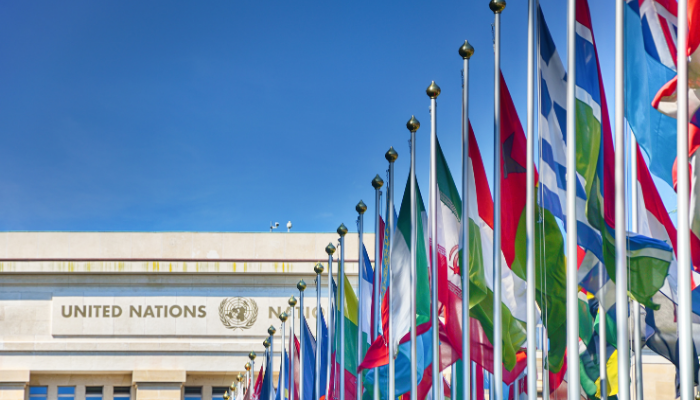
“When world historians tell the story of 2025,” Bill McKibben writes, “it will be about the passing of technological, and hence economic, and hence political leadership from the U.S. to China, in the span of eight months.”
China’s Xi Jinping pledged to reduce greenhouse gas emissions by 7-10 percent by 2035 — reductions that are too modest to stave off global catastrophe and way off from the 30% cut that experts say is feasible and necessary.
The announcement shows “China playing it safe” in comparison to some nations, according to Lili Pike, who has joined Bloomberg to cover China and climate. China has also added 46 gigawatts of new wind energy in just the first five months of this year, enough to power more than 30 million homes, E&E’s Sara Schonhardt reports.
But there are good reasons for China to set unambitious targets and even better reasons to think China will actually exceed the conservative pledge, writes Li Shuo, of the China Climate Hub at the Asia Society Policy Institute, this a New York Times Opinion piece. “The point was that in contrast to the West, where election cycles have constrained consistent climate action, China plays a long game — planning decades into the future. And it doesn’t like to make promises it can’t keep.”
Heatmap News reporters and editors shared the overarching trends they felt dominated Climate Week, including: the PJM Interconnection, pros and cons of AI, and the obscure accounting debate around the Greenhouse Gas Protocol.
“California is what’s left of environmental policy,” Gov. Gavin Newsom said on stage. “New York remains the climate leader,” Chuck Schumer said at a Climate Week event. Sorry Chuck, I’m with Newsom on this one.
Los Angeles and California
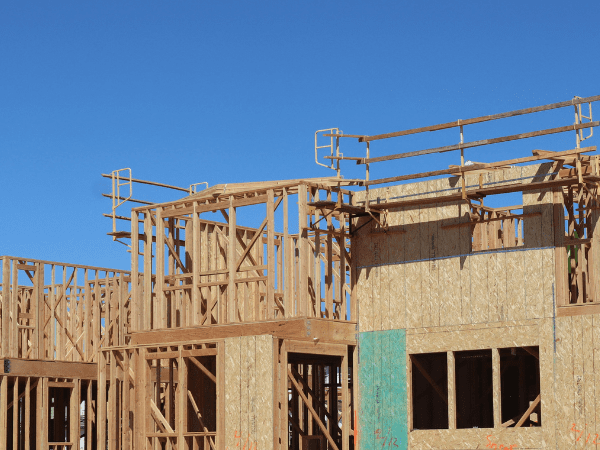
My Emmett Institute colleague Julia Stein has a fascinating blog post uncovering an obscure drafting wrinkle in state law that is impeding local governments from disaster recovery — with a recommendation of how to fix it.
Starting yesterday, LADWP has a program to install solar plus battery systems on qualifying low-to-moderate-income households free of charge. The Self-Generation Incentive Program is a State of California initiative for LADWP customers.
The draft supplemental environmental impact report for the Dodger Stadium gondola proposal was released Monday, kicking off a 45-day public-comment period, LAist reports.
What is the dollar cost of climate change in California? CLEE and Next 10 have a new report quantifying and explaining the ways Californians are already being impacted.
The U.S. Army Corps of Engineers reports it finished clearing 2.6 million tons of wreckage from nearly 9,700 properties in 8 months, the largest and fastest in modern US history. What is too fast? A team of university scientists from UCLA, Loyola Marymount and Purdue tested soil samples from 47 already-cleaned homes in Altadena, finding 49% of already-cleaned homes still had elevated levels of lead above California’s standards for residential properties, LAT’s Tony Briscoe reports.
The California Air Resources Board proposed tightening its Landfill Methane Regulation, which requires landfills to install gas collection and control systems to minimize emissions. the proposed changes would slash emissions of methane, a potent contributor to climate change, Politico’s Noah Baustin reports.
California is boasting over 200,000 public and shared private EV chargers, on their long way to reaching their 2030 goals.
There’s an independent after-action review of LA County’s alerts and evacuations from the catastrophic January wildfires. The McCrystal Group report found “a series of weaknesses, including outdated policies, inconsistent practices and communications vulnerabilities, hampered the effectiveness of the County’s response. The report includes recommendations to help guide future Los Angeles County responses.
An energy bill I have yet to mention in roundups is SB 57. Originally, the bill would have required the CPUC to create a special electric rate for new large-scale energy customers. That was aimed at preventing the proliferation of data centers from spiking energy bills across California.
And AB 1017 would require utilities to submit more financial information to the CPUC as part of their general rate case, potentially enabling advocates to more effectively argue for lower rates.
Following another state bill that took aim at offshore drilling, the Texas-based firm Sable that is trying to restart offshore oil production along Santa Barbara’s coast is now considering a plan that would keep its controversial project entirely in federal waters, Grace Toohey reports for the LA Times.
How has California’s extended Cap-and-Invest Program affected the Yurok Tribe through its carbon offset project in Northern California? Miacel Spotted Elk looks at that for Grist.
A new motion by the federal public defender’s office in Los Angeles aims to disqualify US Attorney BIll Essalyli, arguing he has no lawful authority under federal appointments law, and shouldn’t be the US Attorney for the Central District.
And happy California Clean Air Day! Or rather “Happy Air Day,” if we’re following the Energy Department’s ban on certain words.
‘Zone Zero’
Gov. Newsom is fast-tracking the state’s “Zone Zero” regulations that would limit what plants can grow within five feet of buildings in areas judged to be at highest risk for wildfires. So the CA Board of Forestry and Fire Protection has been holding public forums about the proposed rules.
Californians “may soon have to rethink their relationship with bougainvillea and other ornamental plants as officials grapple with the state’s increasing vulnerability to wildfires,” as the WaPo story put it.
These defensible space rules “will help save homes in very high fire hazard severity zones, or decimate much of Southern California’s urban tree canopy without really deterring wildland fires” depending on who you talk to, Jeanette Marantos writes for the LAT.
Travis Longcore, former president of the LA Audubon Society and an environmental scientist, has a detailed analysis of the proposed regulations.
In the Golden State Report newsletter, Mariel Garza asks if the rules aren’t just trading one environmental disaster for another, especially regarding tree canopy in Los Angeles. “Were I still running the editorial board at the L.A. Times (and if the paper still had a functioning editorial board), this is how I might pitch a piece on the Zone Zero rules,” Garza writes.
Energy
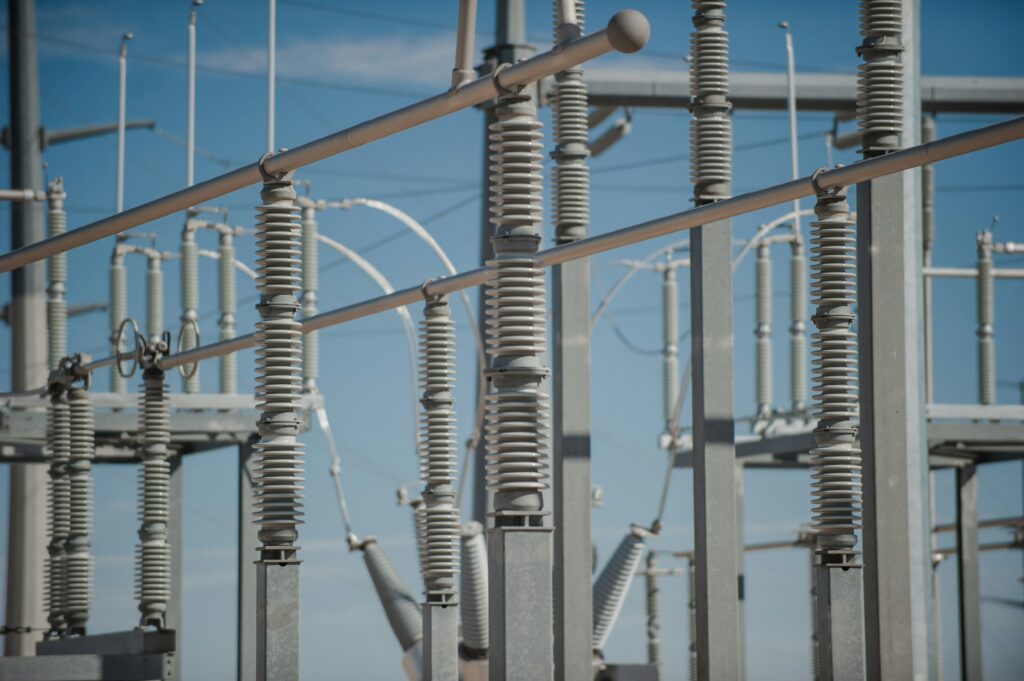
Demand for secondhand EV lithium batteries is surging across Australia, the Guardian reports, as buyers repurpose them for everything from solar storage to off-grid energy.
Starting today, a new electric vehicle era is here. Credits up to $7,500 for many new EVs — intended to be in place until 2032 — are gone under the GOP tax and spending law, Ben Geman writes at Axios.
House Democrats (Sean Casten and Mike Levin) introduced a new package of proposals on Wednesday taking aim at rising electricity prices. It would encourage new power line construction and strengthen utility regulation in much of the country, reports Rob Meyer.
A new report from a think tank called Clean Tomorrow tracks how states are expanding—or restricting—where renewable energy projects can be built. The report’s authors assessed the expected impact of more than 300 state-level siting bills, Inside Climate News reports.
Lawmakers in New Hampshire and Vermont are preparing legislation that could make plug-in solar systems accessible to residents who don’t have the space, money, or inclination to install a larger, conventional rooftop array, Sarah Shemkus reports at Canary Media.
Door-to-door solar sales are a widely accepted form of lead generation in the solar industry, but there’s a lack of regulation and you should watch out for scams, writes Meg Carney for Grist.
New York Gov. Kathy Hochul detailed her $1 billion climate and clean energy plan, News10 reports, including investments in thermal energy networks, electric school buses, and EV charging stations as well as support for low- and middle-income households to adopt heat pumps.
And Sammy Roth’s latest Boiling Point column urges the renewable energy industry to “punch back” and craft punchier slogans. Sound advice.
Pollution
A growing number of Latinos across the US who have installed air quality sensors around their homes, businesses and churches to better understand the polluted air they’re breathing and advocate for change in their communities, Thalia Juarez reports for the Guardian.
Project Drawdown has launched a new platform called the “Drawdown Explorer” which provides detailed information on the many technologies and practices proven or proposed to effectively reduce greenhouse warming pollution in the atmosphere, organized by four categories.
For only the second time in half a century, India’s power generation emissions dropped, Jonathan Zasloff writes at Legal Planet, noting that demonstrates that the world is moving on from the United States.
A group representing nearly all major automakers asked the Trump administration last Tuesday to rollback aggressive vehicle emissions limits that seek to force the industry to build a rising number of electric vehicles.
Litigation
The Sabin Center for Climate Change Law along with Climate Policy Radar launched The Climate Litigation Database, a new climate database interface using AI. “More than 3,000 climate change litigation cases and over 15,000 case documents are instantly accessible online and can be searched and analyzed using advanced machine learning and natural language processing tools,” Sabin says.
A federal judge ruled this week that Maine’s climate accountability lawsuit against major fossil fuel companies can move forward in state court.
California Attorney General Rob Bonta secured two different court wins against the Trump administration: one involved a plan to reduce disaster relief funding for states with so-called sanctuary policies; the other an attempt to slash funding for critical energy programs. Bonta told Reuters more lawsuits are coming: “We’re looking at the many actions that are being taken to sort of adopt this pro-fossil fuel ‘head-in-the-sand’ when it comes to climate change and climate science.”
After the EPA abandoned Biden-era proposals for a new rule meant to reduce slaughterhouse waste,10 groups, including Earthjustice and the Environmental Integrity Project, filed suit in the Ninth Circuit, arguing that the EPA is ignoring its own findings.
Other things worth your time
The DOJ is escalating its attack on state climate policies by now asking the public’s help to identify laws with “significant adverse effects” on the economy. E&E News reports that more than 250 respondents have identified potential targets, including bans on fossil fuel appliances in new buildings and policies to bar the use of so-called forever chemicals in states. Politico’s California Climate newsletter rounded up some of the California policies that made the list: an LA electric building mandate, AB 1201, AB 1066, and others.
My UCLA Law colleague Blake Emerson writes at CalMatters that the University of California needs to take a bolder stand and that a lawsuit by the UC regents would help to fill any gaps created by the Supreme Court’s unclear and evolving jurisprudence.
Nearly 100 scientists, including President Joe Biden’s chief climate science adviser, signed onto a letter last Wednesday endorsing more federal research into geoengineering. More here.
“Affordability is a bit like the weather: Everyone talks about it but nobody does anything about it,” according to this new three-legged Affordability Agenda from the Stanford Institute for Economic Policy Research, by Jared Bernstein and Neale Mahoney.
CEQA reform is “emblematic of California’s new, more balanced approach on some thorny issues, like energy and climate” and national Democrats should follow suit, writes Karen Sketon.
Reader Comments
One Reply to “At a Loss for Words? Resist Climate Silence”
Comments are closed.




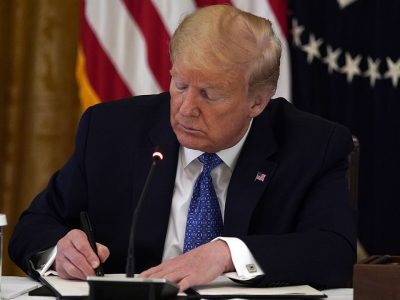


Lots to chew on here – thanks!